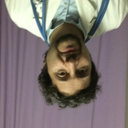Headache, migraine and obesity: an overview on plausible links.
Parole chiave
Astratto
Headache can represent different disorders with different etiologies; including cardiac, cerebral, vascular, psychiatric, metabolic, neurologic diseases. Recent studies have highlighted that obesity is significantly associated with headache and disability in adults. This rule also applies to children. This review focuses on literature data studying any eventual relationship between headache, migraine and obesity [shown in Body Mass Index (BMI)] in children. Research data have highlighted that there is a relationship between headache physiopathology and central and peripheral mechanisms responsible for food assumption. In this regard, neurotransmitters such as serotonin, and peptides such as orexin and adipocytokines (adiponectin and leptin) seem to play a key role both in food assumption and in headache pathogenesis. These data further emphasize the potential association between headache and BMI. Therefore, those therapeutic strategies aiming to decrease BMI may represent a model of useful treatment to understand whether weight loss reduces the incidence and the severity of headache in obese children. In conclusion, considering the effects of obesity and weight loss on the natural history of headache, important changes are expected in therapeutic management of paediatric headaches.





